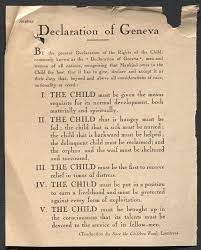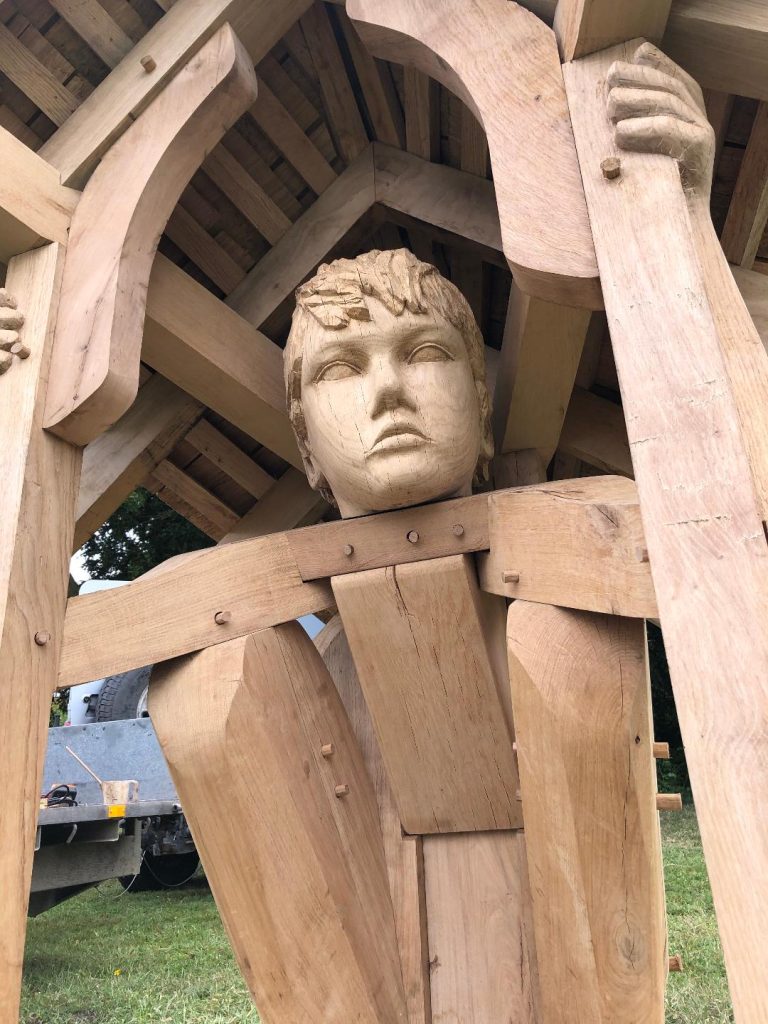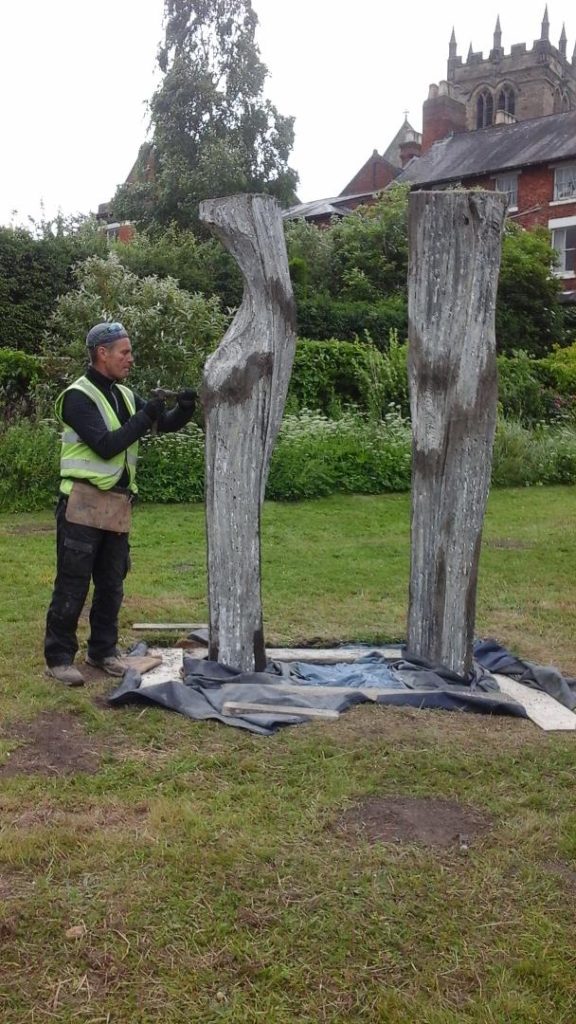News from our partners: New Ellesmere artwork will celebrate Rights of the Child
News from our partners Ellesmere Sculpture Initiative
On a summer day 100 years ago, someone born in Ellesmere climbed to the top of a European mountain, took out her pencil and paper and wrote an inspiring statement that has improved the lives of children around the world.
It was in 1922 that social reformer Eglantyne Jebb drafted her ground-breaking Declaration of the Rights of the Child, which later paved the way for an international treaty signed by nearly 200 countries.

The Geneva Declaration of the Rights of the Child, drafted by Eglantyne Jebb. (Image from the United Nations Library and Archives)
Now, plans are underway to celebrate her pioneering achievement in persuading global leaders to adopt her children’s charter.
Members of the Ellesmere Sculpture Initiative have commissioned a new artwork, which will be placed in the Jebb Garden alongside The Mere.
John Neilson, lettering artist, will shortly begin work on carving a 5ft stone pillar featuring some of her most memorable words.
It will be sited close to two other sculptures erected two years ago to mark the centenary of the international aid charity Save the Children, which Eglantyne and her sister, Dorothy co-founded in 1919, as children in Germany and Austria suffered starvation at the end of World War I.

John Merrill’s wooden sculpture, “Refuge”, is a popular artwork in the Jebb Garden next to The Mere in Ellesmere.
Len Graham, sculpture group chairman, said:-
“Eglantyne is rightly hailed as a true innovator and passionate champion for children; though ironically, as a former school-teacher, she never really showed great fondness for them and once described them as ‘little wretches’.
“Although best-known for setting up the Save the Children Fund, she also campaigned relentlessly for the rights and welfare of children to be something for which everyone should take responsibility. This led to her drafting her the Rights of the Child, which became another lasting legacy and an international benchmark for the treatment of children”.

Nick Eames, artist, putting the final touches to abstract sculpture of Eglantyne Jebb and her sister Dorothy in the Jebb Garden alongside The Mere in Ellesmere two years ago.
Soon after launching the charity in the UK, Eglantyne opened an office in Geneva to co-ordinate the distribution of food and medical supplies across Europe and beyond, through the newly-formed International Save the Children Union.
It was there, in the summer of 1922, while hiking high on Mont Saleve, overlooking the Swiss city, that she reputedly drafted her five-point children’s charter. She presented it to officials of the League of Nations, which had just established its headquarters in the lakeside resort.
It took another two years of arguments and amendments before the document was finally adopted by the League –a forerunner of the United Nations – and dubbed the Declaration of Geneva.
More than 60 years later– long after her death– Eglantyne’s charter provided the basis for the UN Convention on Children’s Rights, a legally-binding international agreement signed by most countries around the world, covering the health, welfare and education of children and protection from violence, abuse and exploitation.
Trudi Graham, the sculpture group’s artistic co-ordinator, said:-
“In this centenary year, it’s fitting that we remember this remarkable achievement which has helped to change the lives of so many children.”
The new artwork will complete the final part of a four-year community art project to commemorate the Jebb sisters, who were born at the Lyth country house on the outskirts of Ellesmere.
The project has been partly-funded by grants from the Heritage Lottery Fund and Arts Council England, with support from Shropshire Council, Ellesmere Town Council, local schools, businesses, voluntary organisations and individuals.
The project site has been developed as the Jebb Memorial Garden at the main entrance to the Cremorne Gardens beauty spot, one of Shropshire’s most popular visitor attractions.
Further information
The Geneva Declaration of Rights of the Child – what it means:
The Geneva Declaration of the Rights of the Child stated that “Humanity owes the child the best it has to give”. In essence, it means that everyone has a duty to give all children the best start in life by ensuring that:-Every child should be given what they need to grow up happy and healthy.
- When a child is hungry, they must be fed. When they are sick, they must be cared for. And when they need support, shelter or guidance, they must be given it.
- Whenever there is a crisis, children should be the first to receive aid.
- Every child should be protected against exploitation, and given the chance to earn a living, when the time comes.
- Every child should grow up understanding the importance of using their talents and skills to help others.

